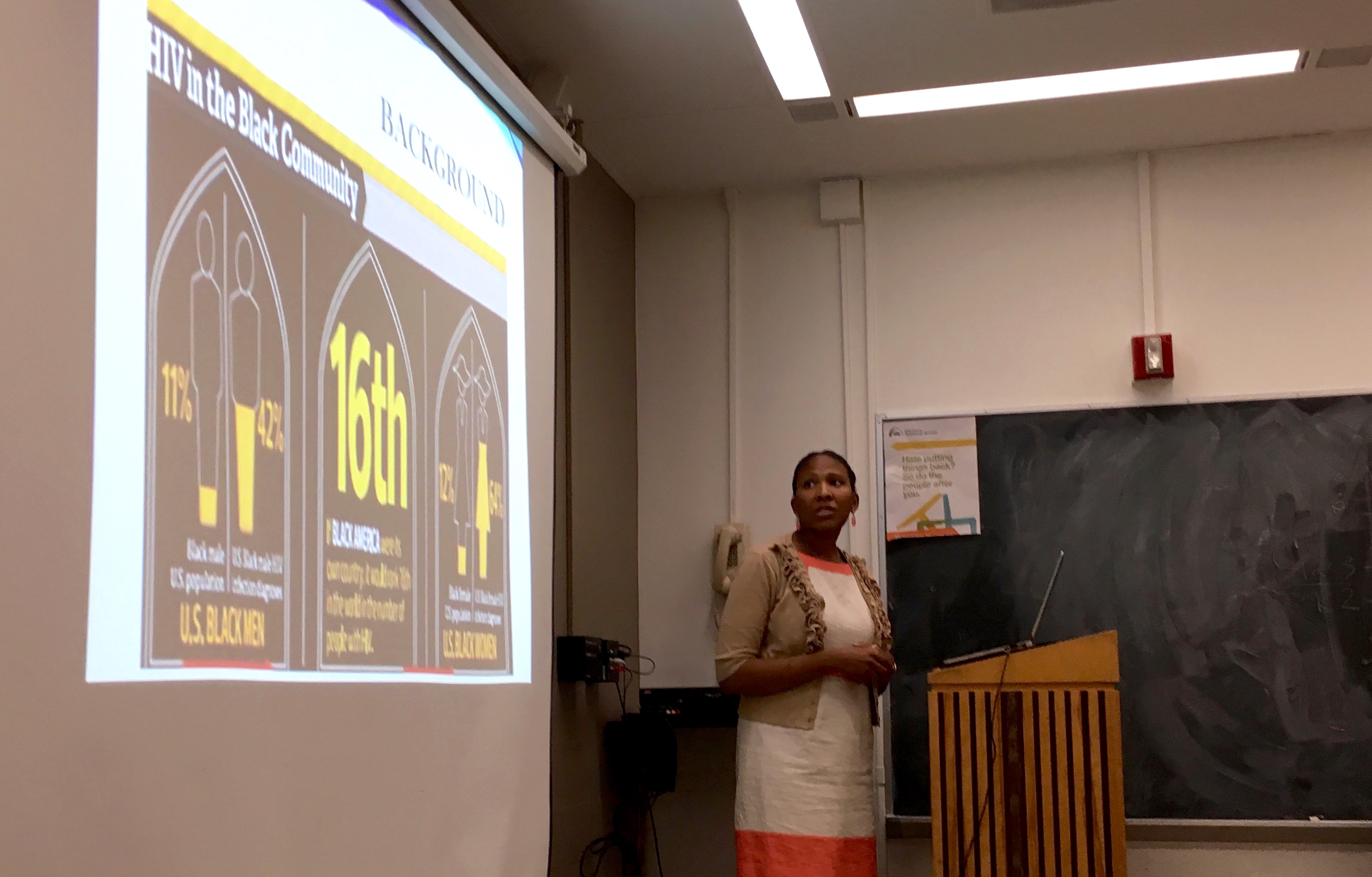On Monday, May 16, Assistant Professor at Johns Hopkins University School of Nursing, Jennifer M. Stewart, PhD, RN, visited the UCSF School of Nursing and presented as a guest speaker. In her talk entitled “Community and Faith-based Intervention Approach to HIV Risk Reduction,” Jennifer shared with faculty, staff, and students the results of her research on the role and relationship of four African-American churches in three major U.S. cities in HIV education.
Dr. Stewart’s research focuses on community-based approaches to HIV risk reduction in underserved populations, and has concentrated primarily on engaging African-American churches as partners in development and implementation of varied approaches.. Her work has revealed that, despite historic and contemporary tensions around sexuality, innovative multi-level structural approaches can promote uptake of interventions that prevent HIV and promote HIV testing and linkage to care in African-American churches and their communities. Jennifer recently completed a multi-church study focusing on promoting readiness to incorporate HIV testing and linkage to care and treatment. She is currently receiving funds to look at factors supporting implementation of a church-based risk intervention for young adult African-American women.

Dr. Stewart began by presenting the statistics of HIV infection for underrepresented populations, noting that the African American community has the highest rate (44%). She reminded the audience of the activist leadership role that the African-American church has had at the forefront of social justice movements, citing Dr. Martin Luther King Jr. as just one example. In the cities of Baltimore, Philadelphia, and Chicago, along with other metropolitan areas across the country, the African-American church communities offer a receptive audience prepared for the dissemination of education and other information. Her research focuses on select churches in these cities. One of the churches in her study has nearly 20,000 members.

Jennifer stressed the importance of working with the community members throughout the process of the project. The results reveal that many in the congregation are sexually active and that an average around 37% were using condoms. Additionally, pastors were willing to educate and provide condoms on an individual (1:1) basis but less so at the pulpit (public) level. An integrated approach, where spiritual principles are merged with physical health emerged as a sustainable solution for all. Of those interviewed, suggestions for an adaptive approach included leveraging items such as: media, Bible, food, and existing values. Additional highlights shared from the Restore project’s hybrid type 2 (dual testing of clinical and implementation interventions/strategies) effectiveness-implementation mixed methods work include the network-based enhanced facilitator training as well as suggestions for the sustainability of implementation. At the conclusion of Jennifer’s presentation the audience fielded questions regarding contributing factors (e.g. denominations), teaching of abstinence and need to adapt, creative methods to engage church leadership, and source gathering for scripture incorporation.
Additional Reading:
Stewart, J.M., Dancy, B.L. Factors contributing to the development of an HIV ministry within an American church. Journal of the Association of Nurses in AIDS Care
Stewart, J.M. Pastor and lay leader perceptions of barriers and supports to HIV ministry maintenance in an African American church. Journal of Religion and Health.
